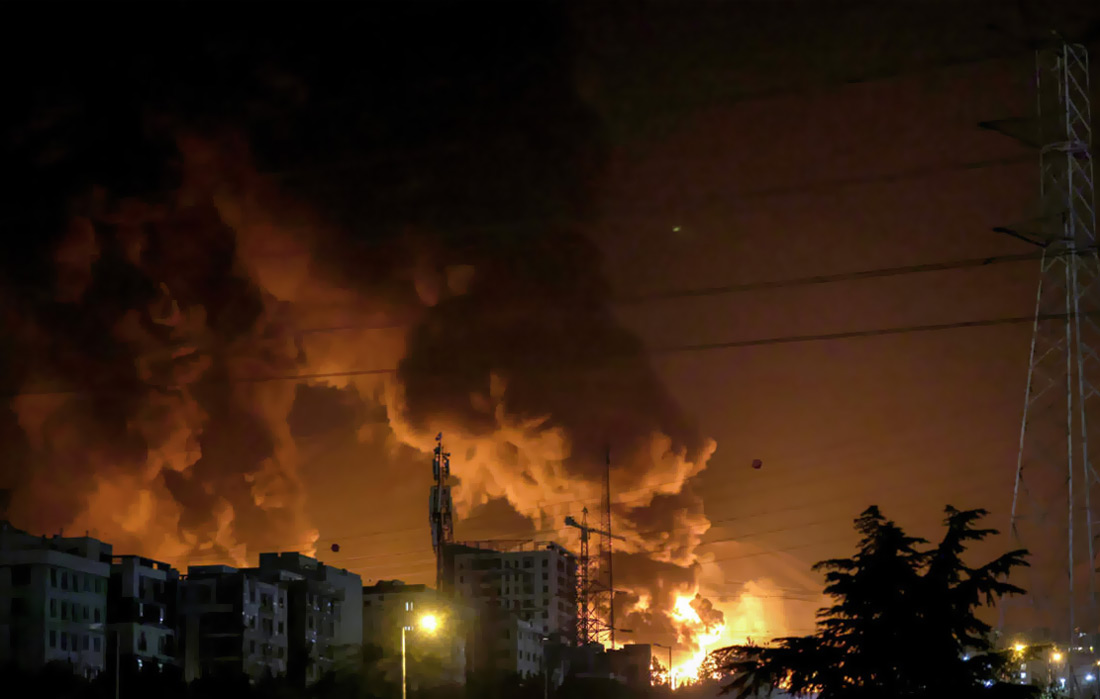In a significant display of regional unity, 22 Muslim-majority countries across the Middle East, South Asia, Southeast Asia, Africa, and Turkey have issued a joint condemnation of Israel’s recent military strikes against Iranian targets. Released through Egypt’s Foreign Ministry and reported by Newsweek, the statement criticized Israel’s actions as dangerously escalatory and urged a return to diplomacy over military confrontation.
Among signatories were Gulf Cooperation Council states—Saudi Arabia, the UAE, Qatar, Oman, and Bahrain—alongside Pakistan, Turkey, Indonesia, Algeria, Jordan, Libya, and a number of African nations. The statement described the strikes as a “category rejection and condemnation” of Israeli attacks since June 13, decrying what it called “unprecedented escalation of tensions” and warning that such actions threaten a broader regional conflagration and undermine ongoing nuclear negotiations with Iran.
Israel has reportedly struck multiple Iranian nuclear and missile facilities, targeting key military assets and scientists—an action Prime Minister Benjamin Netanyahu called necessary to “prevent Iran from achieving nuclear weapons capability.” Iran responded with rocket and drone counterattacks, including strikes on Tel Aviv and Haifa.
Diplomacy under pressure: Reports suggest that Iran has signaled openness to de-escalation and a resumption of nuclear talks—on the condition that Israeli attacks cease and the U.S. does not directly intervene. Gulf mediators like Qatar and Oman are reportedly facilitating back-channel talks to prevent further escalation.
“We call for an urgent halt to Israeli military operations & appeal for de-escalation to avoid broader war.”
— Reuters (@Reuters) June 17, 2025
Meanwhile, U.S. President Donald Trump reaffirmed support for Israel’s defense but reiterated pressure on Iran, warning Tehran to “evacuate the city immediately” via Truth Social, and lamented Iran’s failure to honor promised agreements.
Netanyahu has acknowledged civilian casualties, stating, “the rocket makes no distinction; it harms both Jews and Arabs.” He framed the military campaign as a fight for national survival following fatalities in Tamra.
The fallout has disrupted routine life across the region: airspace over Gulf nations was closed; shipping and energy infrastructure faced heightened threats; international airlines suspended flights to Israel amid missile alerts.
The broader international reaction: Many world leaders, including G7 members, reaffirmed Israel’s right to self-defense but urged restraint. UN Secretary-General António Guterres called for “utmost restraint,” while Russia offered mediation. Governments such as Australia, Germany, Malaysia, Mexico, and Nigeria issued strong condemnations over violations of international law and threats to global stability.
Geopolitical implications: Analysts warn that if Israel’s campaign continues unchecked, Iran may accelerate nuclear efforts and expand into cyber warfare—already reported targeting Iranian financial institutions. Some Gulf states are urging the U.S. to intervene diplomatically to prevent wider destabilization of energy markets and global supply chains.
What comes next? The next critical moments include the U.S.-Iran nuclear talks currently on hold and G7 Leaders’ statement pushing for regional de-escalation while upholding Israel’s rights. Ceasefire diplomacy continues behind the scenes in Doha and Muscat, while Gulf states ramp up security cooperation as civilian and economic risks rise.
Key takeaway: The rare consensus among 22 Muslim-majority nations underscores a broad-based alarm over the widening conflict. With both battlefield strikes and diplomatic exchanges intensifying, the risk of a major regional war looms larger—highlighting the urgent need for diplomatic intervention.

